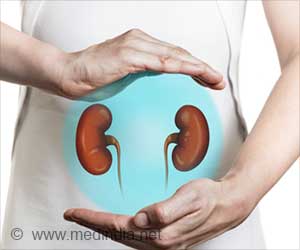Highlights
- In prostate cancer, progression from a hormone-sensitive state to castration resistance under androgen deprivation therapy marks the transition to the lethal phenotype of the disease.//
- One-third of patients show primary resistance to abiraterone and enzalutamide treatment, which is given for prostate cancer.
- An approach to test disease and treatment resistance has been identified using mRNA levels in peripheral whole blood.
How Do Tumors Resist treatment
During the course of treatment, however, some tumor cells develop resistance to these drugs, and continue to grow and metastasize. The culprit: the tumor's testosterone receptors have changed their structure, and the new variant can signal cancer cells to continue dividing and spreading - even without testosterone.
AR-V7 is the most common receptor variant seen in patients. "If we know in advance whether or not a tumor has developed cells with this receptor, we can provide advice on an individual basis at an early stage - this can spare seriously-ill patients from undergoing an ineffective therapy," explains Assistant Professor Dr. Matthias Heck, co-leader of the study and a specialist for Urology at the University Hospital TUM Klinikum rechts der Isar in Munich.
Blood tests For Prostate Tumors
The new test developed by TUM researchers utilizes a completely different method for looking at different markers in order to reliably, quickly and inexpensively measure the presence of the modified receptor AR-V7 at an early stage.
AR-V7 RNA Levels Indicate Treatment Resistance
For the study, TUM researchers analyzed blood samples from 85 patients with advanced stages of prostate cancer. They were able to successfully demonstrate that approximately one fifth of the patients had large amounts of AR-V7 RNA in their blood - an indication of large quantities of resistant tumor cells.
The new blood test has the potential to improve existing testing methods and can be used as an alternative. It analyzes the amount of AR-V7 RNA molecules in the blood. High levels of AR-V7 RNA in the blood indicates tumor cells resistant to therapy with abiraterone and enzalutamide.
Dr. Silvia Thoene, co-lead author of the study, emphasizes the high sensitivity and accuracy of the new testing method: "Only minute amounts of RNA are needed in a sample for the test to work. Additionally, since AR-V7 RNA is present in every tumor cell that possesses the resistant receptors, it means that no tumor cells are slipping by undetected."
"We were able to demonstrate that we can accurately predict whether or not resistance against abiraterone or enzalutamide is present in a patient," explains Winter. The next step for researchers will be to further improve upon the testing method and also compare its efficacy to that of existing testing methods using a larger sample of patients.
Reference
- Anna Katharina Seitz et al., AR-V7 in Peripheral Whole Blood of Patients with Castration-resistant Prostate Cancer: Association with Treatment-specific Outcome Under Abiraterone and Enzalutamide, European Urology (2017) http://dx.doi.org/10.1016/j.eururo.2017.07.024 .
Source-Medindia













